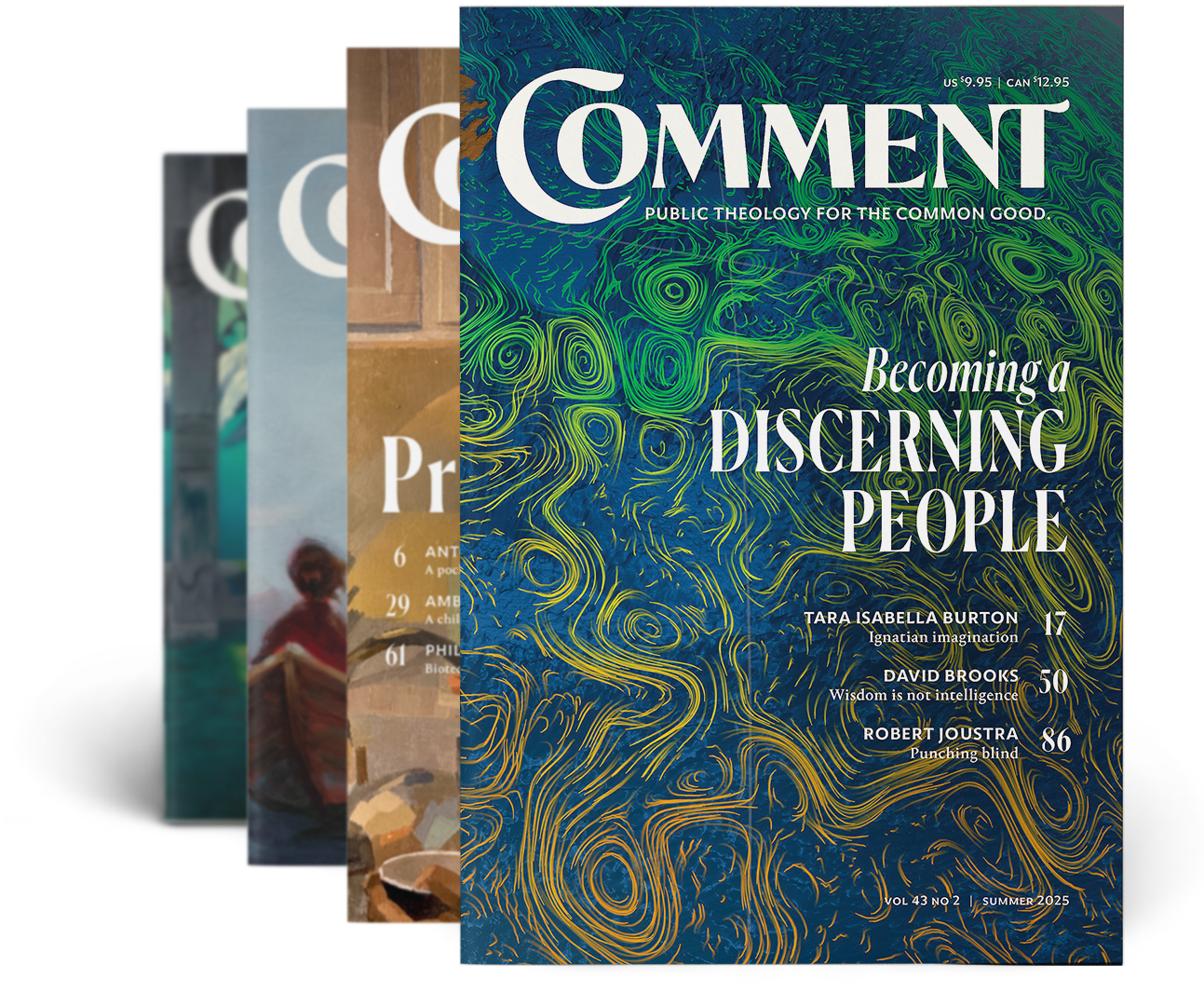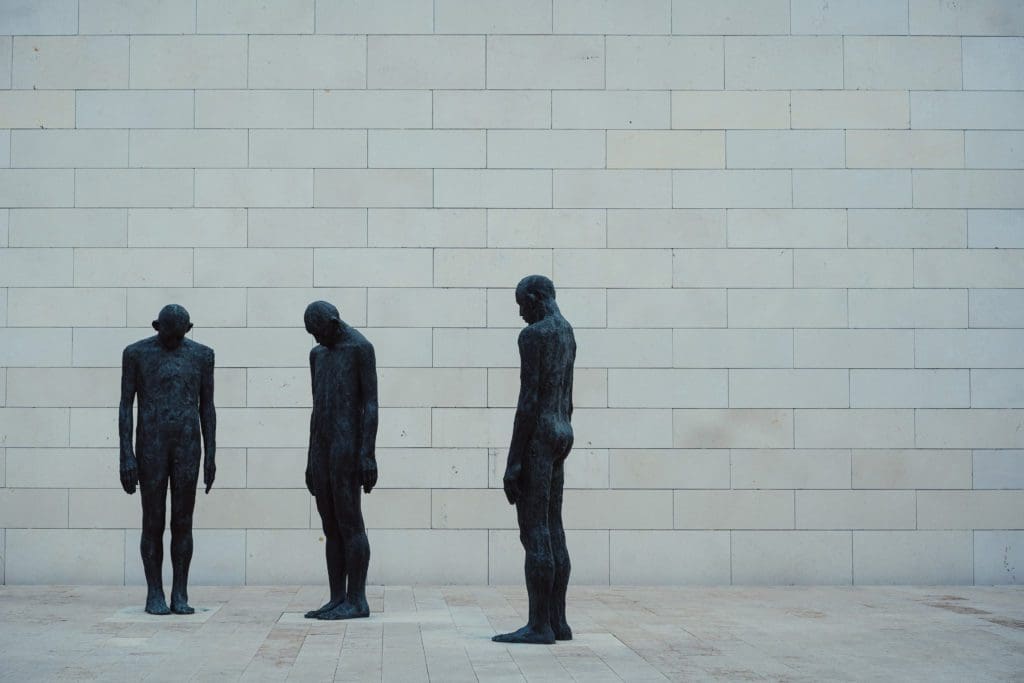W
What is the meaning of life? What is my purpose in life? What can I contribute to the world? Will I be remembered after I die? These questions essentially ask the same thing: Why am I here? And it is a question that surfaces in different forms through different stages in life. It may be, “What am I going to be when I grow up?” Or it may take the form of “What should my major or career be?” Or the question could even be, “Am I happy with what I have done in my life thus far?” In these varied forms, this may well be the number one question that haunts everyone’s life.
Sometimes, the question comes in moments of crisis or despair. In fact, the answers some people give to this question are cause for despair! For instance, Samuel Beckett wrote a play called Breath that lasts all of 35 seconds. It begins with a dark stage. Then you hear the sound of a newborn baby’s cry, followed by a breath being drawn slowly in. Simultaneously, the lights slowly go up on the stage to reveal a pile of garbage. Then, the breath is slowly let out and the lights go dim until the stage is in darkness again. There’s a second cry, and the play is over. Beckett’s message seems pretty clear: Life is garbage, over in a single breath. For Beckett, life is meaningless. There is no purpose to our individual lives.
Most of us, however, do not agree with Beckett. Most of us feel there is more to life than mere biological existence and survival. But the play as a metaphor is how I would like to approach the “Why am I here?” question.
William Shakespeare once wrote, “All the world’s a stage, and all the men and women merely players: They have their exits and their entrances” (As You Like It). Seeing ourselves as actors on a world stage playing out the script of our lives is helpful in one way—it helps us see the relevance and role of Scripture in our lives.
Every play has a story or a plot that makes sense of the series of events in the play. There’s a beginning, middle, and end to every story, usually with a conflict or tension that the characters need to resolve. Many philosophers, theologians, and psychologists today recognize the importance of narrative or story in our lives. Whether deliberately or unconsciously, we choose to tie together the different events or occurrences in our lives into a meaningful and coherent plot or story. We often look back at our history and mark certain cause and effects—if I hadn’t went to this university I wouldn’t have met my spouse, for instance, or if we hadn’t chose to move to this city our lives would be much happier, etc. Weaving all the seemingly random and different events in our lives into a story gives them meaning and purpose. All of us, therefore, live out of some big story.
God’s revelation to us in the Bible can be seen as telling us a big story that all of us can live by. It’s a big story that gives meaning to all of our lives that helps answer, “Why am I here?” Theologian N. T. Wright suggests that the Bible can be seen as a big story or play in five acts (The New Testament and the People of God, 1992). Richard Middleton and Brian Walsh, building on Wright’s idea, divide the Bible into six acts (Truth is Stranger Than It Used to Be, 1995). I summarize the six acts as follows:
Act 1: Creation. God creates a beautiful world in perfect harmony, unity amid diversity, loving relationships of interdependence. And God created human beings, male and female, to relate to him in loving communion and to relate to the world, as God’s representatives, in loving communion as well.
Act 2: Alienation. But this perfect world didn’t last. Human beings, seduced by the anti-god way of life, chose to play God instead of being content with their roles as humans. They broke the harmony in the world. They turned interdependent relationships into oppressive and domineering relations. By playing God to the world and to themselves, human beings distorted their proper relationships to God and to the environment. As a result, they have alienated themselves from God and the environment. Hostility, rather than love, marks all our relationships.
Act 3: Reconciliation, Part I. God, however, did not remain silent and did not choose to leave us to our own self-destructive ways. God decides to bring about reconciliation from this alienation we have created. In his reconciliation plan, God chose to invite humans to cooperate with him. God starts with one couple, Abraham and Sarah, and through them He creates the nation of Israel, whose job is to bring healing, restoration, and reconciliation to the world on God’s behalf.
Act 4: Reconciliation, Part II. In this act, God’s reconciliation plan reaches its climax. God wrote himself into the play, as it were, in the person of Jesus Christ. And Christ’s death on the cross was the ultimate act of forgiveness and reconciliation for the world.
Act 6: Renewed Creation. In the final act, God’s reconciliation project reaches its completion and the whole creation—humanity, animals, and plants—are reconciled into harmonious living again. Broken relationships are healed. Everyone is, once again, playing their proper roles in the drama of life, in loving interdependent relationships. However, this final act, in one sense, is not the end but is only the beginning.
You may have noticed that I have already touched on these themes in my previous three articles responding to the questions: who am I, where am I, and what’s wrong? You may have also noticed that I left out Act 5. This is because Act 5 is not finished. Act 5 is still being written today by us.
In the movie Dead Poets Society (1989), a controversial English Literature teacher, John Keating, shakes up a New England prep school for boys in the 1950s. One day, Keating (played by Robin Williams) quotes a Walt Whitman poem to his students: “O me! O life! . . . of the questions of these recurring; Of the endless trains of the faithless—of cities filled with the foolish; What good amid these, O me, O life?” As the students listen transfixed, Keating continues, “Answer: That you are here—that life exists, and identity; That the powerful play goes on, and you may contribute a verse.” As the final words sink in, Keating looks at his students and asks, “And what will your verse be?”
“That the powerful play goes on, and you may contribute a verse,” is what God invites us Christians, who live by the biblical story, to do. We are invited to contribute to the script that is the drama of, not only our individual lives, but of the world, of our human race. N. T. Wright puts it like this: suppose we discovered a previously unknown play of Shakespeare’s and the newly found manuscript is missing one act, Act 5. What could we do? One way is to get the world’s most experienced Shakespearean actors together and get them to immerse themselves into the rest of the play, Acts 1 through 6 (without 5) until it becomes second nature to them. All the play’s themes, emphases, character values, direction, vision for life or truth become embodied in these actors. With that, these actors can improvise Act 5 when they act out the play. Of course, in their improvisation, these actors would improvise the story in such a way that it remains true to the previous Acts 1 to 4 and somehow connects with the final Act 6.
Similarly, Christians who live by the biblical story are asked to improvise in Act 5 of the cosmic drama. God has revealed to us the framework, the overall plot, the big picture of how the story goes. We need, therefore, to immerse ourselves into this story, into Acts 1, 2, 3, 4, and 6, so that it becomes second nature to us. And we start improvising, contributing our verses to the play, in a manner that is true and loyal to the overall story, continuing Acts 1 to 4 and connecting with the final Act 6. In this way, we are co-writers with God of not only our own life story but of the big story of the universe.
So, to the question, “Why am I here?” there is no narrow specific answer for every individual person. There is, however, an overall big story answer in which we can each improvise within it. We have the big story of the Bible that helps us see the overall meaning of life and the overall direction that human history has taken and will take. We have clues within this biblical story that tells us what the major themes are: “Love your God with all your heart, with all your mind, with all your soul and with all your strength. Love your neighbour as yourself” (Mark 12:30–31). “Do justice, love mercy, and walk humbly with your God” (Micah 6:8).
Other Christian actors from the past have made their contributions to Act 5, and we can learn from them. For instance, the Westminster Catechism of the seventeenth century asks, “What is the chief end of humanity?” and answers, “Our chief end is to glorify God, and to enjoy him forever.”
These general guidelines give us freedom to improvise, as long as our improvisation remains faithful to the big picture story, to its main themes, helped along by the insights of the Christian actors who have gone before us. Many Christians before us have contributed to God’s reconciliation efforts. For instance, think of the legacy of Mother Theresa and Martin Luther King, Jr. Or great Christian thinkers such as Augustine, Thomas Aquinas, Martin Luther, John Calvin, Abraham Kuyper, etc. Or thousands of others who are lesser known but equally contributed to Act 5.
So, why are you here? Well, to answer that, you will have to answer for yourself, what will your verse be?
The beauty of this, for me, is the great freedom God gives us. We are not fixed to a narrow, previously scripted role that we have to somehow decipher and act out accordingly or else our lives are “screwed up”! No, God is much more gracious than that. God gives us the freedom to improvise, to feel our way along, to make our own contributions to the big story that he has written and is writing.
In all of this, the great Master Artist God is still in full artistic control of the whole thing, as the ending, Act 6 is already written. This not only gives us freedom but also gives us relief. We are not burdened with the near impossible task of writing Act 6, of making the final chapter a reality. God has that covered. We are not asked to create heaven on earth; God will do that in his own time. Our responsibility is to be faithful and to contribute toward Act 6. Act 6 depends on God, not on us.
Despite the freedom and the relief, however, you might still feel intimidated or insignificant. You might say, what can I do? What verse can I contribute? How can anything I do be significant? Well, two of Jesus’ parables are always an encouragement to me: “The kingdom of heaven is like a mustard seed that someone took and sowed in his field; it is the smallest of all the seeds, but when it has grown it is the greatest of shrubs and becomes a tree, so that the birds of the air come and make nests in its branches. . . . The kingdom of heaven is like yeast that a woman took and mixed in with three measures of flour until all of it was leavened” (Matthew 13:31–33).
Contributing to God’s kingdom, making verses or improvisations that connect to the renewed creation of Act 6, is like small mustard seeds or yeast, seemingly insignificant in size, yet grows into havens for birds or spreads, silently and invisibly, into all the flour. We cannot judge our lives simply by our human standards. It may seem small and insignificant to us but in God’s mysterious ways our lives are mustard seeds or yeast that grows or multiplies and make significant, if not essential, contributions to the big story.
So, do not dread the question, “Why am I here?” but embrace it with excitement, as a challenge, just as an actor takes up the challenge of improvising Act 5 in the world’s most brilliant play. But you do this not to show off, but to be faithful to the integrity of the story. In short, live your life by the biblical story, to glorify God and to enjoy God in all that you do.






